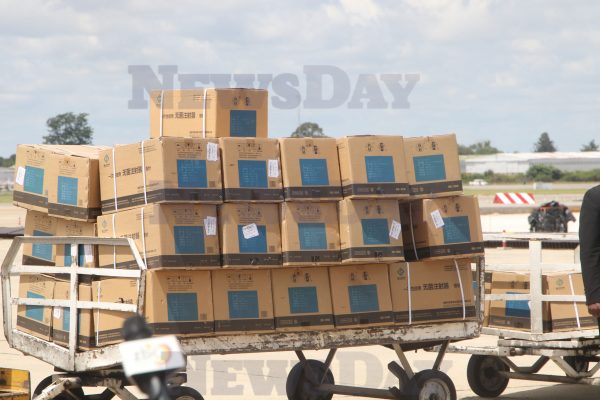
BY VANESSA GONYE/LORRAINE MUROMO
THE success of Zimbabwe’s mass vaccination programme is under scrutiny after a senior Chinese official made a rare admission that its COVID-19 vaccines being administered in the country have a lower efficacy rate than previously thought, prompting the World Health Organisation (WHO) to launch a probe.
Chinese vaccines Sinovac and Sinopharm are being rolled out in the country and with Zimbabweans initially hesitant to take up the inoculation due to lack of information about its efficacy, but the number had increased with 223 492 having received the jab as of Sunday.
Gao Fu, head of the Center for Disease Control and Prevention told a weekend conference in China that authorities had to “consider ways to solve the issue that efficacy rates of existing vaccines are not high,” despite Zimbabwe forging ahead with mass import of the jab.
WHO officials yesterday said it had deployed health teams to China to assess the efficacy of the Asian nation’s vaccines.
WHO country representative Alex Gasasira told NewsDay that the experts were already in the Asian country to study the Sinovac and Sinopharm COVID-19 vaccines being rolled out in Zimbabwe.
“Those are still undergoing evaluations by WHO, and until the experts give a comprehensive report there is not much that we can say. Experts from WHO have been sent to China for the assessment,” he said.
Gao Fu’s statement in the south western city of Chengdu on Saturday marks the first time a senior Chinese official has admitted that the country’s vaccines were not as effective as previously alluded to.
- Chamisa under fire over US$120K donation
- Mavhunga puts DeMbare into Chibuku quarterfinals
- Pension funds bet on Cabora Bassa oilfields
- Councils defy govt fire tender directive
Keep Reading
“The protection rates of existing vaccines are not high,” he was quoted saying. He then listed two options to solve the problem: one which is to increase the number of doses, or to adjust the dosage or intervals between shots; and the other being to mix vaccines developed from different technologies.
Zimbabwe has taken delivery of two types of vaccines from China — Sinovac and Sinopharm — whose efficacy was said to range from 50,4% to 83,5% and 72,5% and 79,4%, respectively.
Apart from the Chinese Sinovac and Sinopharm jabs, the Indian Covaxin is also being administered.
The southern African country is targeting to inoculate at least 10 million people, which is 60% of the population to achieve herd immunity.
COVID-19 national taskforce chief co-ordinator Agnes Mahomva, however, told NewsDay that she had confidence in the vaccines, adding that they met the WHO standards in terms of efficacy.
“The vaccines have gone under WHO evaluation and have proven to have a good efficacy rate. According to WHO guidelines, any vaccine with 50% efficacy can be used. The efficacy of vaccines is different; it can either be 30% or 50%, and so it depends with where you are getting your information from,” Mahomva said.
“We still have big confidence in what we have because the main aim of a vaccine is to prevent sickness, hospitalisation and death. We know it’s not 100%, but the vaccines are within the WHO efficiency rate, and we go by the WHO guidelines, we have our clinical trials and papers in order. We are happy and we are tracking,” she said.
Efforts to get a comment from Health deputy minister John Mangwiro were fruitless as he kept saying he was in a meeting.
According to CNN, the two pharmaceutical firms that supply the majority of Chinese COVID-19 vaccines to the world have not published comprehensive clinical trial data in medical journals on their vaccines’ effectiveness.
Senior Hospital Doctors Association president Shingai Nyaguse said they could not make a conclusion based on media reports, but added that they were awaiting a report on phase three trials of the vaccines.
“We cannot really comment before they release what we call phase three trial, but it would have been good if we had done our own efficacy tests,” Nyaguse said.
Community Working Group on Health executive director Itai Rusike said the Medicines Control Authority of Zimbabwe as the regulatory authority for medicines and vaccines in the country needed to address the issue so that people are better informed.
“My message to the people of Zimbabwe is to encourage all the vaccinated individuals to continue taking public health precautions such as proper wearing of face masks, handwashing with soap and running water and observing social distancing measures to prevent infections and transmission even if one has been vaccinated,” Rusike said.
By March 2021, China had supplied 40 million doses to countries across the globe, including Brazil, Serbia, the United Arab Emirates and Zimbabwe.
The Oxford-manufactured AstraZeneca vaccine efficacy rate was also revised downwards after facing criticism for releasing incomplete data and has been recalled from several countries.
- Follow us on Twitter @NewsDayZimbabwe











